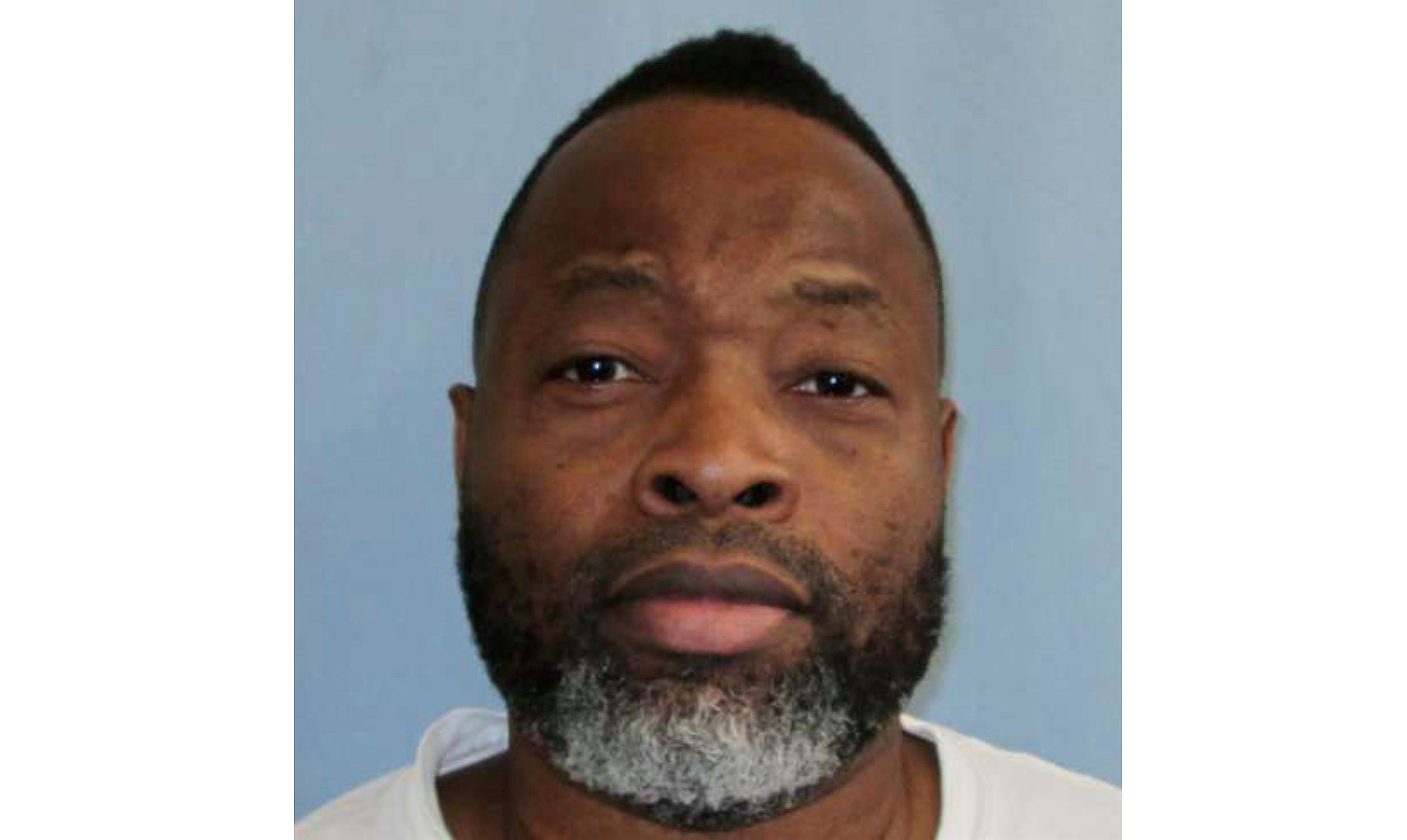
Criticism continues to rain in on Alabama prison officials, after the July execution of Joe Nathan James Jr, which contained procedural anomalies and lasted more than three hours, likely setting a record for the longest execution in US history.
James, who was convicted of murdering his ex-girlfriend Faith Hall in 1994, was executed on the evening of 28 July against the wishes of the victim’s family, who instead prefered a life sentence.
“Today is a tragic day for our family,” Hall’s family told WIAT in a statement at the time. “We hoped the state wouldn’t take a life simply because a life was taken and we have forgiven Mr Joe Nathan James Jr … We pray that God allows us to find healing after today and that one day our criminal justice system will listen to the cries of families like ours even if it goes against what the state wishes.”
Not only that, the execution itself took roughly three-and-a-half hours, and witnesses weren’t brought into the death chamber until James was already sedated. He was unresponsive when asked for his last words.
According to both Alabama prison officials and an independent autopsy of James’ body, prison officials struggled to place an IV on him. After the execution, state officials said they “cannot confirm” whether James was conscious during his execution.

An examination, sponsored by the humans rights organisation Reprieve US, showed purple bruising across James’ hands where officials tried to place an IV, as well as wounds on his wrist. There was also a cut in his arm, likely to find a vein for the lethal injection protocol to be delivered through, they said.
“Slicing deep into the skin with a sharp surgical blade in an awake person without local anesthesia would be extremely painful,” Joel Zivot, an associate professor of anesthesiology and surgery at Emory University and a lethal-injection opponent who helped conduct the private autopsy, told The Atlantic. “In a medical setting, ultrasound has virtually eliminated the need for a cutdown, and the fact that a cutdown was utilized here is further evidence that the IV team was unqualified for the task in a most dramatic way.”
Yvette Craig, James’s sister, said in a statement last week she wants a full investigation into what happened, and felt Alabama officials were trying to make an example of her brother during an election year.
“Only the [Alabama Department of Corrections] ADOC employees know what occurred during those three hours,” she said. “At the very least,” she continued, officials “should have let the execution warrant expire and revisit the method of execution.”
The Independent has reached out to ADOC for comment.
Alabama has defended how it handled the execution.
“When carrying out the ultimate punishment, we have protocols that lay out a very deliberate process to make sure the court’s order is carried out correctly,” state officials said in a statement after the execution. “ADOC’s execution team strictly followed the established protocol.
They at first maintained that “there was nothing out of the ordinary” about the execution, but later conceded they had problems establishing IV lines.
Death penalty observers said the execution was a reminder of the frequent, often cruel, errors and irregularities in lethal injection cases, and the death penalty at large.
“If the department does not know whether a prisoner is conscious or unconscious at the time of the execution, then they are incompetent to carry an execution out. If the department does know but will not say, then they cannot be trusted,” Death Penalty Information told Alabama’s Montgomery Advertiser newspaper.
In James’s specific case, the delay was so long it amounted to unconstitutional cruel and unusual punishment, argues Maya Foa of Reprieve US.
“Subjecting a prisoner to three hours of pain and suffering is the definition of cruel and unusual punishment,” she told The Guardian. “States cannot continue to pretend that the abhorrent practice of lethal injection is in any way humane.”
Alabama has been accused of botching executions before.
In 2018, it took officials two-and-a-half hours to place an IV on Doyle Ray Hamm, so long that the execution was temporarily called off.
The Independent and the nonprofit Responsible Business Initiative for Justice (RBIJ) have launched a joint campaign calling for an end to the death penalty in the US. The RBIJ has attracted more than 150 well-known signatories to their Business Leaders Declaration Against the Death Penalty - with The Independent as the latest on the list. We join high-profile executives like Ariana Huffington, Facebook’s Sheryl Sandberg, and Virgin Group founder Sir Richard Branson as part of this initiative and are making a pledge to highlight the injustices of the death penalty in our coverage.







